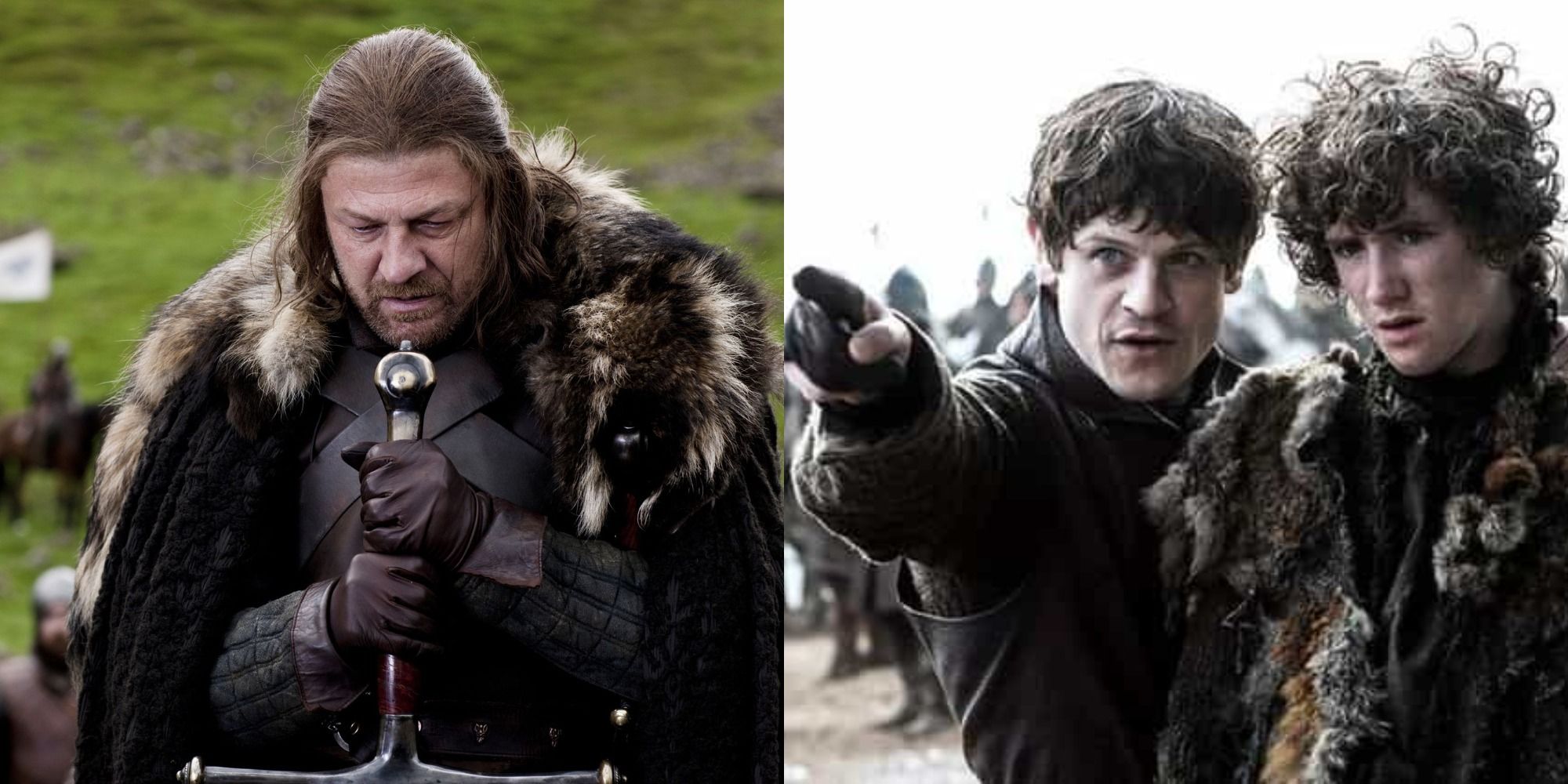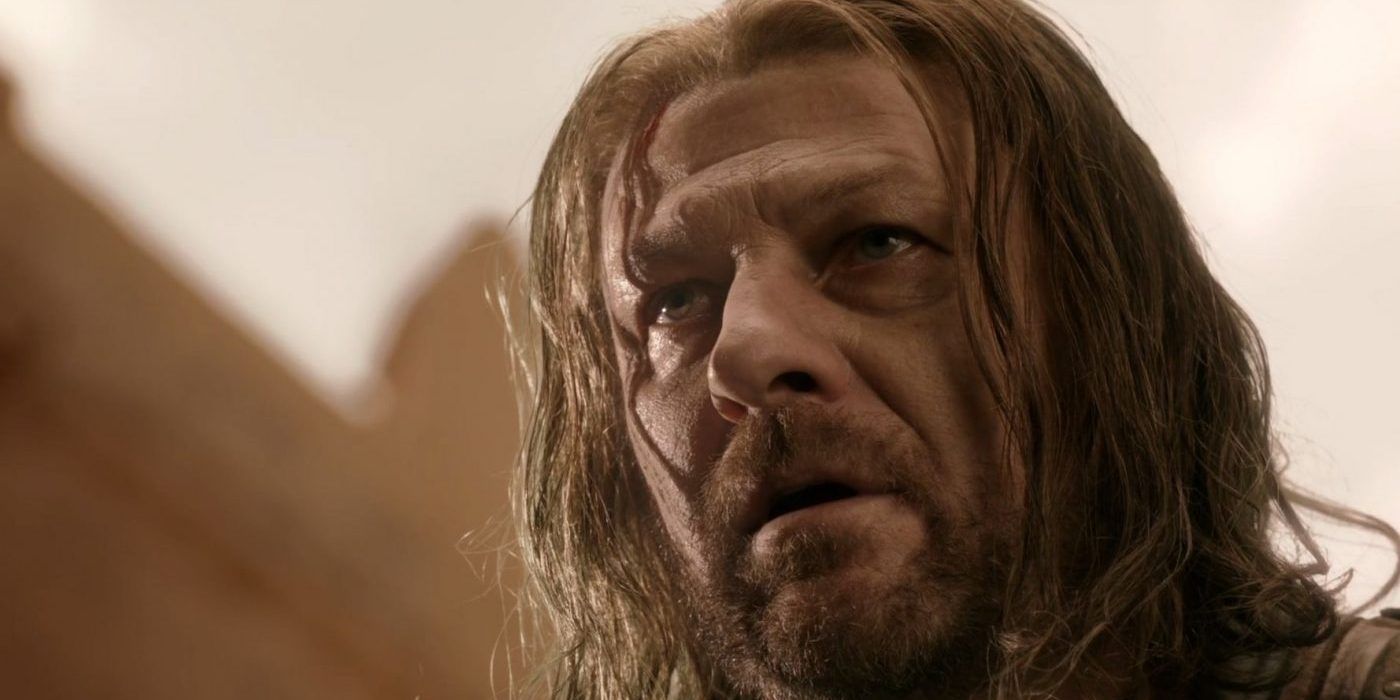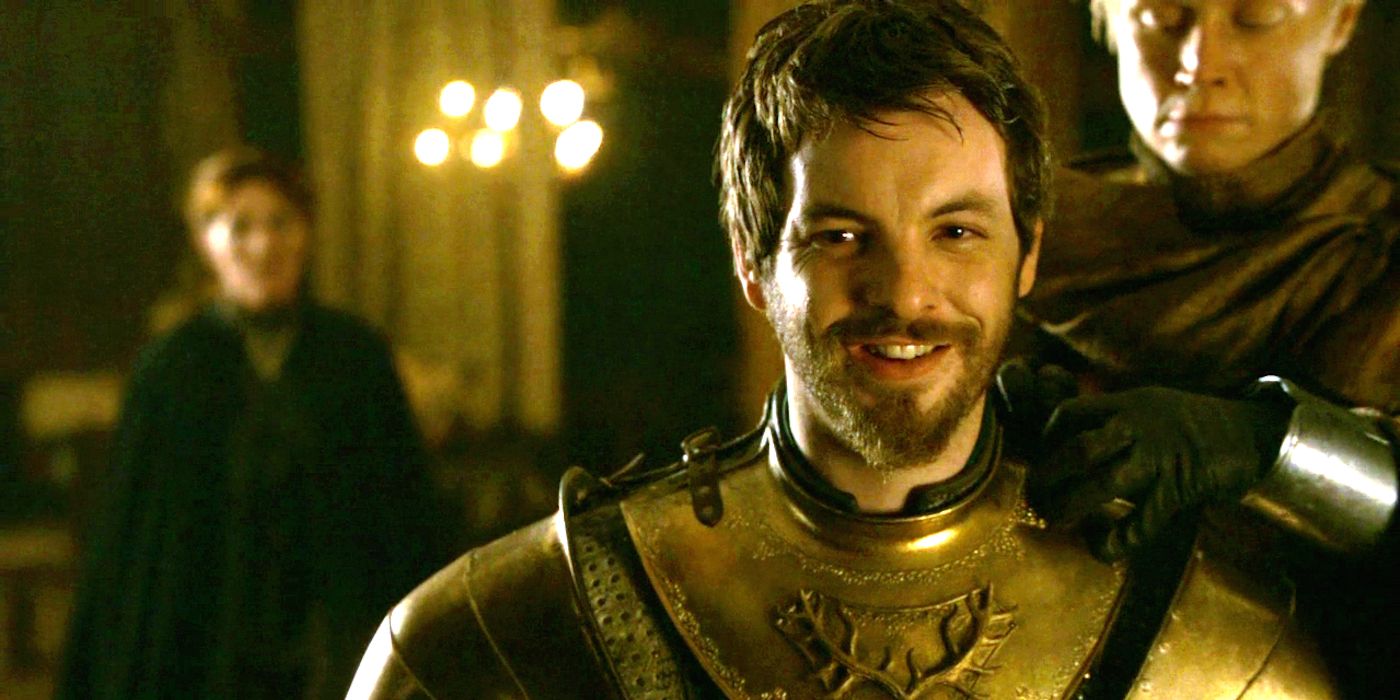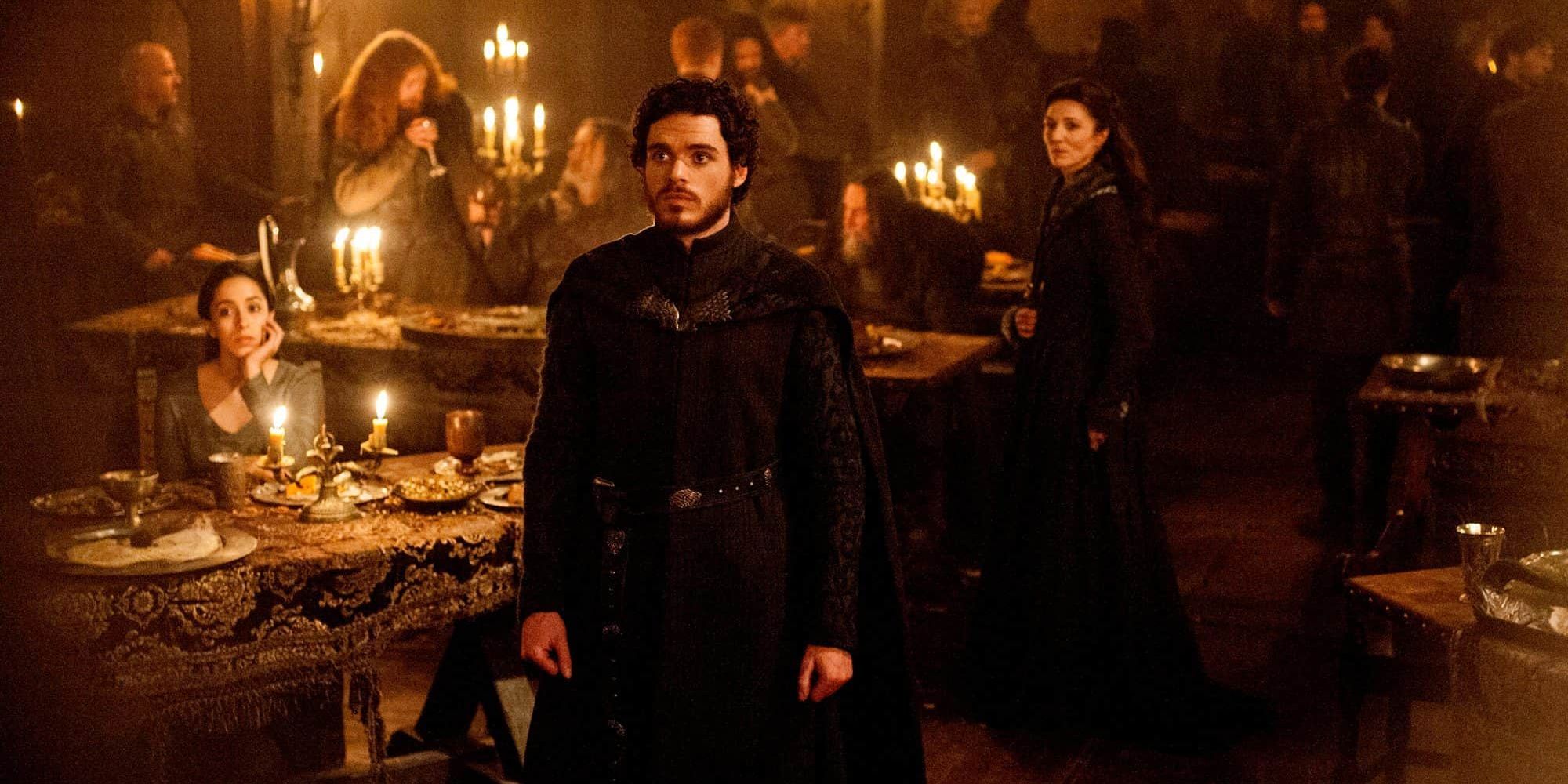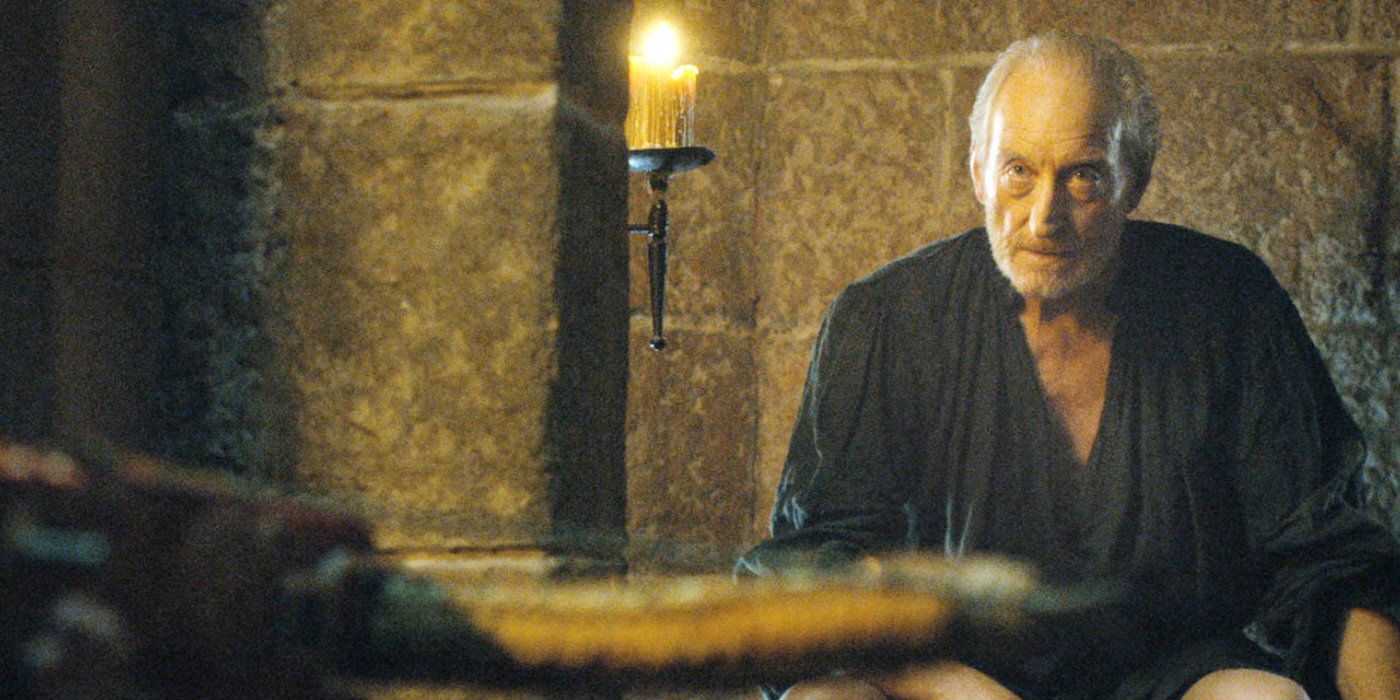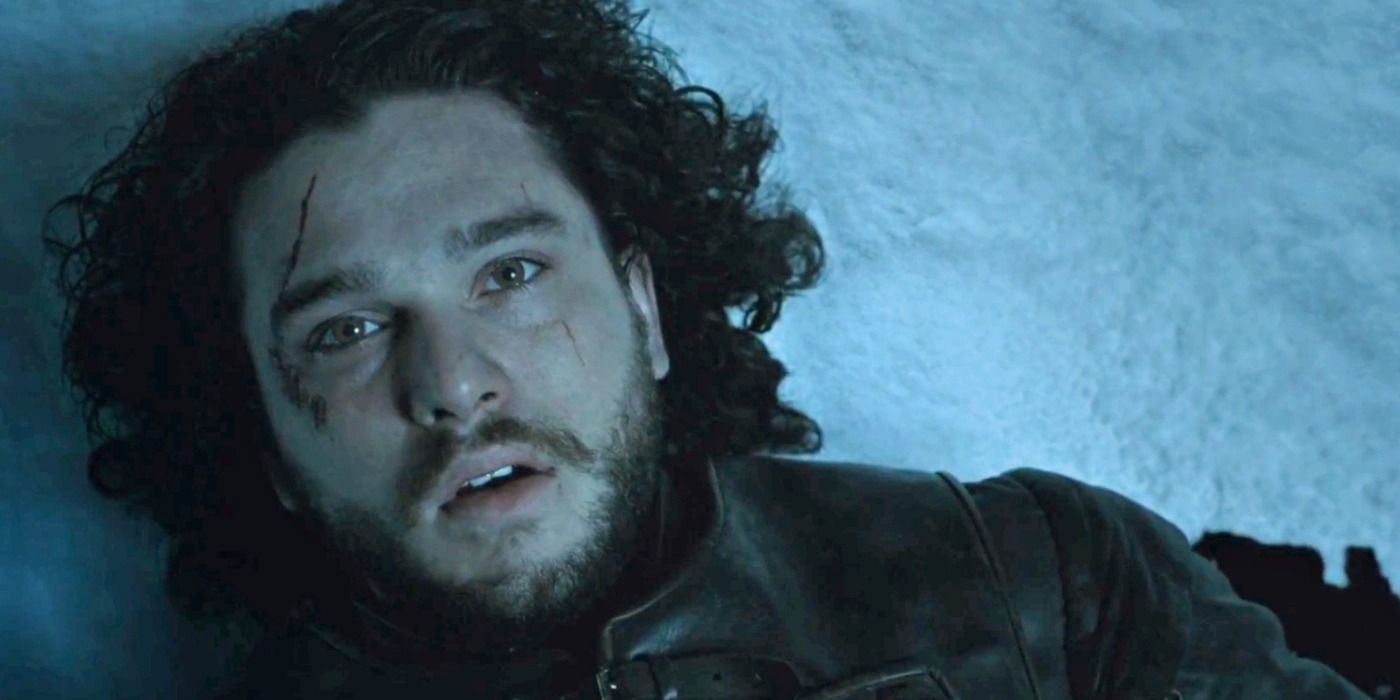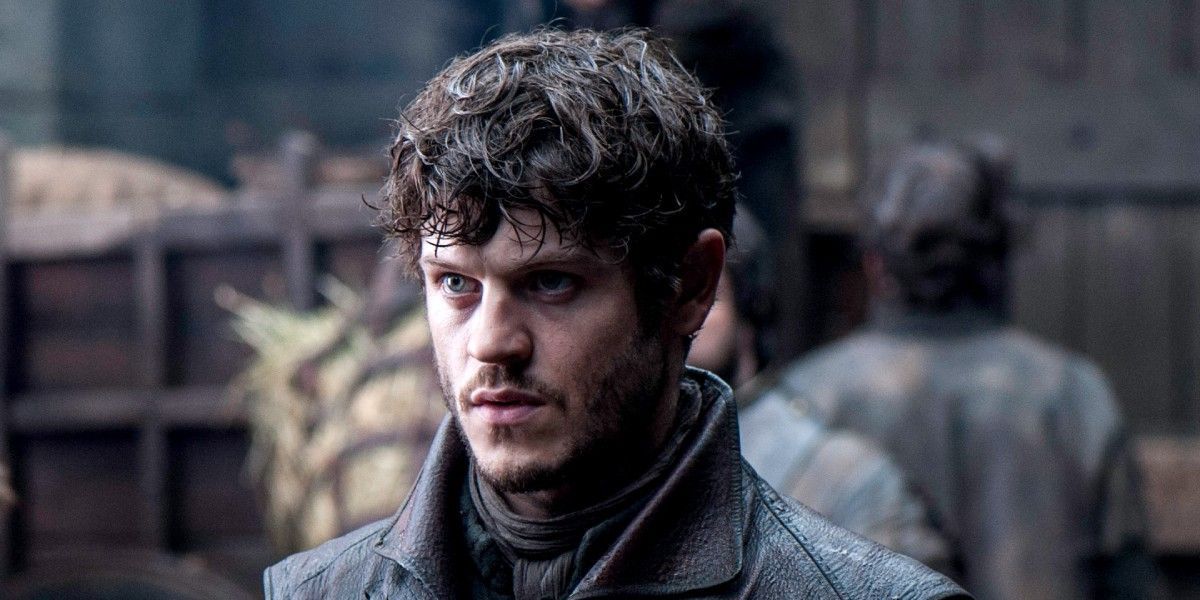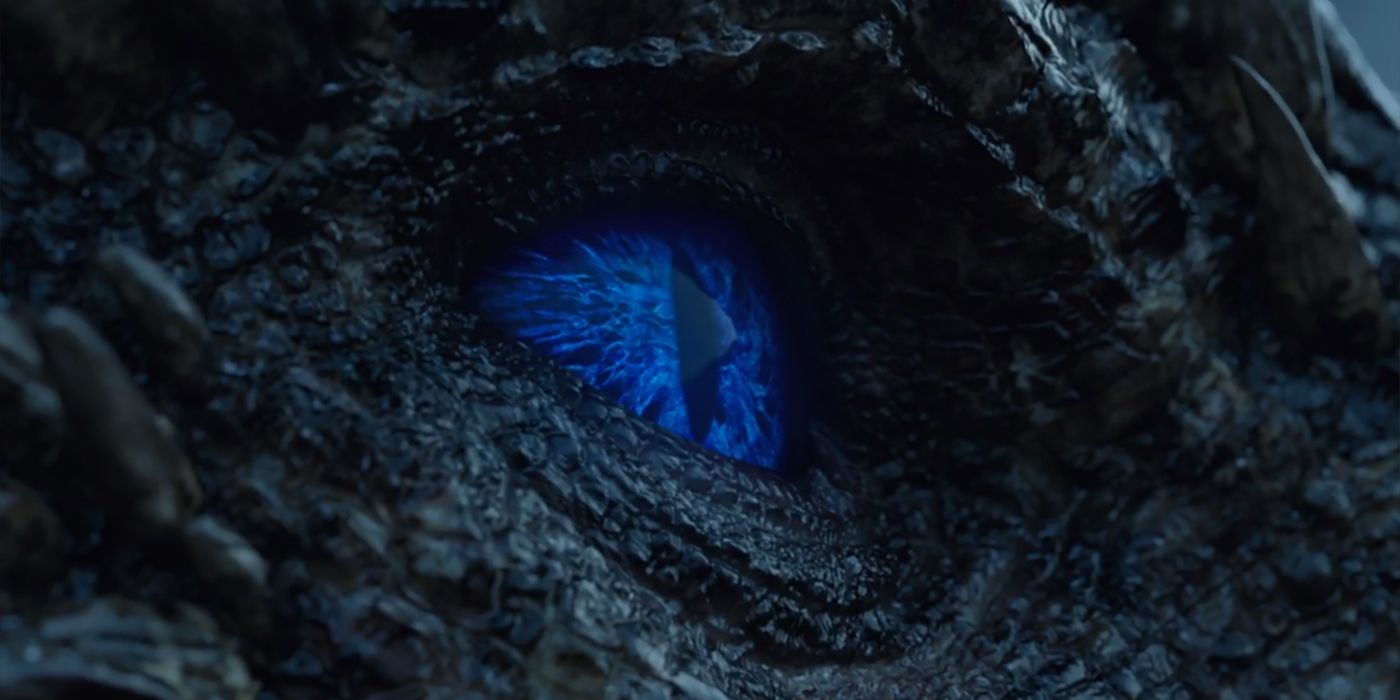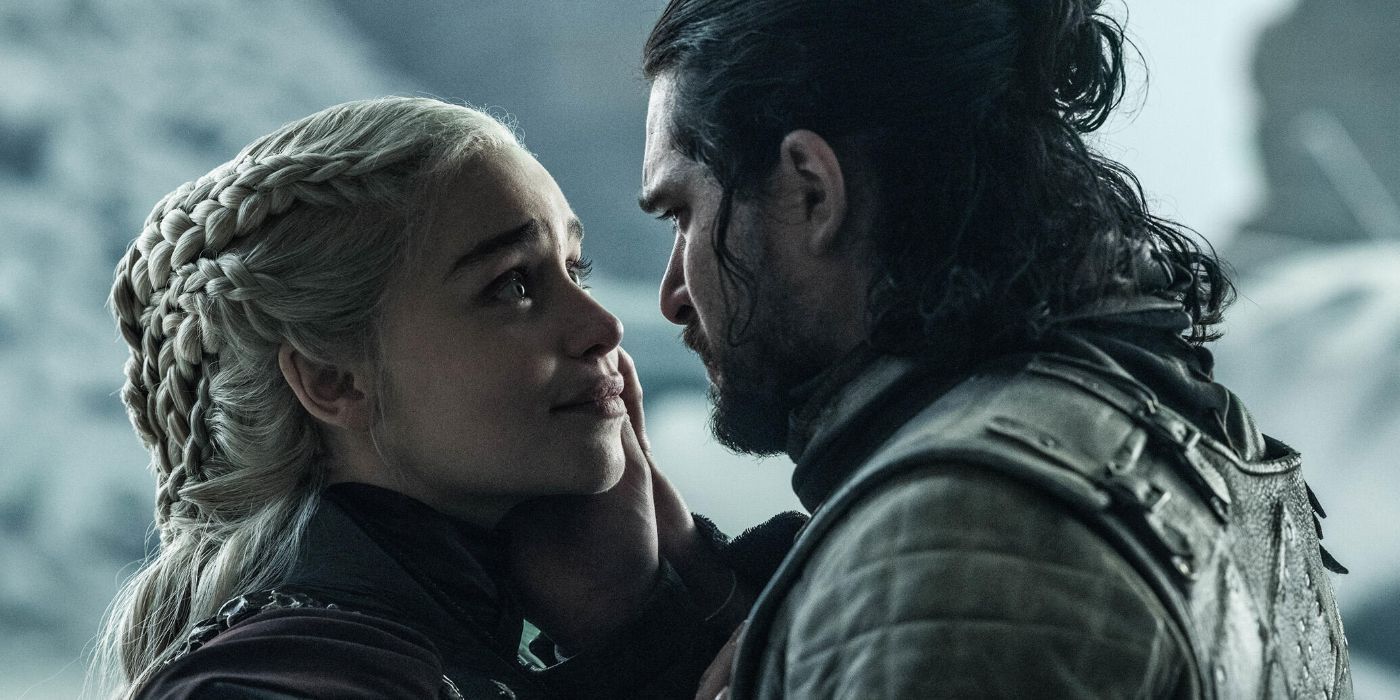It didn't take long for Game of Thrones to gain the reputation of being a show that frequently killed important characters. Every season featured major deaths, from beloved fan-favorites to despicable villains.
The most important deaths in the show are those that had the most impact on the main characters, their development, the story, the political dynamics between the Houses of Westeros, and the fight against the Army of the Dead. Sometimes the most important deaths were the same as the saddest deaths, but this was not always the case.
Season 1: Ned Stark
Ned Stark was the main character in the first season of Game of Thrones. His death set the tone for the entire series because if the main character could be killed, no one was safe. His death devastated everyone in his family as they struggled to grapple with this momentous loss. The loss of Ned forever changed Arya, Sansa, Jon Snow, Robb, Bran, Catelyn, and even Rickon, and led to decisions that would impact all of Westeros.
Joffrey Baratheon's decision to execute Ned--even though Ned kept his word--proved that Joffrey was a ruthless, sadistic, and impulsive king who could not be reasoned with or trusted. It solidified Joffrey as an irredeemable villain, especially considering that he did it in front of Sansa, who Joffrey was betrothed to at the time. The North responded by declaring Robb King in the North, blazing a path of independence that ultimately led to the North being its own independent kingdom by the end of the series.
Season 2: Renly Baratheon
Renly Baratheon's death changed the entire course of the War of the Five Kings. Prior to his death, Renly seemed like the strongest king fighting to take the Iron Throne from Joffrey and the Lannisters. He had the full strength and resources of the wealthy House Tyrell and all their bannermen. Renly was well-liked and inspired genuine loyalty in warriors like Brienne of Tarth, who became the best knight of the Seven Kingdoms. There was even the possibility of Renly having an alliance with the North.
All of this potential died when Melisandre's shadow demon assassinated Renly. House Tyrell and their bannermen went on to side with the Lannisters while the rest of Renly's forces flocked to his brother Stannis Baratheon, who'd previously had precious little support in his pursuit of the Iron Throne. The Lannisters became even stronger through their alliance with the Tyrells, Stannis became a legitimate threat who nearly took King's Landing during the Battle of Blackwater, and the North lost the chance of an alliance that could've changed the tide of the war. On a more personal level, Renly's death forced Brienne to forge a new path, new loyalties, and to reexamine her identity without Renly.
Season 3: Robb Stark
The Young Wolf and King in the North surprised everyone with his military prowess. Despite having no military experience, Robb won every battle against the Lannisters and their forces. Unable to defeat Robb and the North in the field of battle, the Lannisters resorted to killing Robb at the infamous Red Wedding.
The Starks had been among the most powerful players in the game of thrones up to that point. Robb's death seemed like the end of the Starks. It also felt like the Lannisters won the War of the Five Kings as the Starks were the last strong opponent still standing. The Boltons took control of the North and the Freys were given control of the Riverlands. Robb's death had a profound impact on his family and it influenced many of their most important decisions throughout the rest of the story.
Season 4: Tywin Lannister
Tywin Lannister and Joffrey Baratheon were the two biggest character deaths of season 4. Tywin's death was the most important because it sparked the fire that ultimately led to the Lannisters losing control of the Iron Throne and the Seven Kingdoms. While Joffrey's death impacted main characters like Cersei, Tyrion, and Sansa, Joffrey's death did not change the Lannisters' status or power. Joffrey was simply replaced with Tommen while the real power--Tywin Lannister--continued to control the Iron Throne and rule the Seven Kingdoms.
When Tywin died, the real power behind the Lannisters was dead. The once seemingly invincible Lannisters were now seen as vulnerable, causing opponents like the High Sparrow and the Martells to strike at the Lannisters in ways they never would have dared while Tywin was alive. Tywin's death pushed Cersei into becoming the true power behind the Iron Throne. It also firmly placed Tyrion in opposition against his family, which led to significant changes for his character motivations and arc.
Season 5: Jon Snow
Even though Jon Snow was resurrected in season 6, his death was still the most important of season 5. As Game of Thrones's all-time best cliffhanger, Jon's death led to intense debate and speculation about whether he was really dead, even during the many months between season 5 and 6. Since Jon's assassination was also the last thing that happened in the books as well, no one knew for sure what his fate would be.
In the actual story, Jon's death was alarming because he was one of the only characters who understood the threat posed by the Army of the Dead and was one of the only ones actively taking steps to better face this threat. Without Jon, it was unclear who, if anyone, would be able to lead this fight against the undead.
Season 6: Ramsay Bolton
Ever since the Red Wedding, the North had been under the control of the Boltons. The Starks lost their home and much of their power while the North suffered under the selfish and ruthless Boltons. Focused only on their own gain, they did nothing to prepare the North for the Army of the Dead's imminent invasion.
Ramsay Bolton's death and his defeat at the Battle of the Bastards ended the Boltons' rule over the North. The Starks reclaimed Winterfell and once again ruled the North. They were able to ensure that the North was prepared for the Army of the Dead's invasion, which included making some powerful, sometimes uncomfortable, yet necessary alliances. Sansa's role in Ramsay's death also proved that he had no power over her anymore and that she was stronger than him.
Season 7: Viserion
The death of the dragon Viserion was more important than the death of any human character in season 7 because it enabled the Night King and the White Walkers to destroy the Wall. With Viserion under their control, the Wall fell, and the Army of the Dead marched into the North.
Viserion's death also had a major impact on Daenerys Targaryen and Jon Snow. Having seen the Army of the Dead for herself and seeing them able to slay one of her dragons, Daenerys finally saw the legitimacy of the threat Jon had been warning her about all along. She and her forces dedicated themselves to stopping the Army of the Dead before continuing her fight for the Iron Throne. With Daenerys now committed to the fight, Jon bent the knee to her, a decision that had many ramifications for the future of the North and for all of the Seven Kingdoms.
Season 8: Daenerys Targaryen
The Night King is arguably the most important death in season 8 as his death destroyed the entire Army of the Dead. However, it was Daenerys who ended up being the ultimate and final villain of season 8. Daenerys and her forces helped vanquish the Army of the Dead and she succeeded in her quest to take the Iron Throne.
Unfortunately, these victories came at the cost of losing almost everyone and everything she ever cared about, transforming her into a "Mad Queen" and dictator who massacred the people of King's Landing and someone determined to conquer the rest of the world. Daenerys' death was much more personal and emotional than the death of the Night King and was the death that finally broke the wheel of power that Daenerys always wanted to break, which in many ways is what Game of Thrones was all about.

